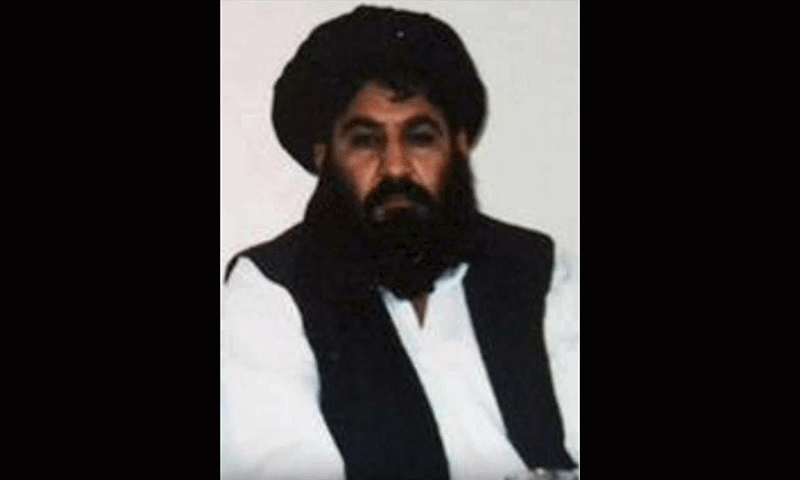KABUL: New Taliban leader Mullah Akhtar Mansoor called for unity in the movement in his first audio message released Saturday amid reports of rifts in their ranks following the announcement of the death of former chief Mullah Omar.
“We should all work to preserve unity, division in our ranks will only please our enemies, and cause further problems for us,” he said in the recording released by the group.
In the 33-minute message, the new Taliban chief also says the insurgency will continue and advises his followers not to pay attention to rumours spread about the Taliban campaign.
Mansoor replaced Taliban founder Mullah Mohammed Omar, whose death was confirmed by the militants on Thursday, although the timing of his death is unclear.
“Our goal and slogan is to implement Shariah and an Islamic system, and our jihad will continue until this is done,” he said in the message.
The audio message from Mansoor also mentioned peace talks with the Afghan government, though it was not clear whether he supported them.
Kabul held talks last month with the Taliban in an attempt to work towards a peace process for the war-ravaged nation, though the second round of talks that had been expected in Pakistan on Friday was postponed following the announcement of the death of Mullah Omar.
Afghan Taliban leaders not consulted over Mullah Omar's successor: report
The Afghan Taliban's Supreme Council was not taken into confidence over the appointment of the group's new leader following reports of Mullah Omar's death, said a report published on the BBC.
Mullah Akhtar Mansour had been notified as successor to the late Mullah Omar on Friday. The appointment had been reported a day earlier but his designation as emir was announced on Friday.
However, a spokesman for the group told BBC that Mullah Mansour had not been appointed "by all Taliban" which, he said, was against Shariah.
The council will now hold a meeting to elect a new leader, he added.
Mullah Mansour, who is in his mid-50s, served as head of the aviation department during the Taliban government and after their ouster from power remained the shadow governor of Kandahar. Within the organisation, he remained on the supreme council and deputy to Mullah Omar. He also headed the political and military division of Taliban, because of which he has been maintaining direct contact with the field commanders.
Taliban spokesman Mullah Abdul Manan Niazi said those who elected Mullah Mansour had not followed the rules.
"According to Islamic rule and principles, when a leader dies, a Shura (council) is called, then its leader is appointed," he added.
Earlier on Wednesday, Afghanistan said that Mullah Omar, the reclusive leader of the Afghan Taliban movement, died more than two years ago in Karachi.
“The government ... based on credible information, confirms that Mullah Mohammad Omar, leader of the Taliban died in April 2013 in Pakistan,” the Afghan presidential palace had said in a statement.
Take a look: Mullah Omar died in Karachi in April 2013: Afghan govt














































